Description
Mushroom Medley Details
ThorneVet’s Mushroom Medley combines five organic, hot water-extracted medicinal mushrooms — Reishi, Turkey Tail, Cordyceps, Maitake, and Chaga. This synergistic blend of medicinal mushrooms provides robust support for balanced immune system function. The Mushroom Medley blend is ideal for supporting patients with weakened immune function, including providing support for patients undergoing treatment for cancer.
Key Nutritional Support Features:
- Made from certified organic mushrooms
- A blend of organic extracts of Reishi, Turkey tail, Cordyceps, Maitake and Chaga
- Hot water-extracted only from mature fruiting bodies – no mycelium – no fillers or grains
- Tested to ensure high levels of beta-glucans – guaranteed to provide greater than 20-percent beta-glucans content
- Third-party tested for quality, potency, and purity
Special Nutrients
Overview
Medicinal mushrooms have been used for thousands of years to promote health and wellness. Reishi mushroom, or Ganoderma lucidum, for example, was considered in Traditional Chinese Medicine to be the “mushroom of immortality.” Reishi’s medicinal properties were so revered in ancient Chinese culture that its use was reserved only for the emperor.
Medicinal mushrooms have long been considered to be superior adaptogens because they help the body deal with stress. They are also considered to be “longevity tonics” because of their system-wide support in helping to maintain a balanced immune response throughout the body. Medicinal mushrooms have been found to have beneficial effects on digestion, circulation, respiration, immune function, and cognition.1
It has been suggested that medicinal mushrooms exhibit this broad spectrum of pharmacological activity due to the mechanisms of action of their various bioactive constituents, including immunomodulating, digestive, hepatoprotective, neuroprotective, nephroprotective, osteoprotective, and hypotensive activity.1 It is believed to be the presence of various natural constituents of medicinal mushrooms — phenolic compounds, polysaccharides, terpenoids, and other bioactive compounds — that contributes to their potent biological activity.2
Bioactive Compounds
Polysaccharides represent the major bioactive compounds existing in medicinal mushrooms. Polysaccharides are believed to exhibit potent immunomodulatory activity – they bring balance to the immune system.1 The best known and most abundant of the mushroom polysaccharides are the alpha-glucans and the beta-glucans.3
Terpenoids are organic compounds present in mushrooms that have been reported to be extremely versatile in their health-promoting benefits, with effectiveness against multiple adverse health conditions.4
Proteins are found in mushrooms in abundant quantities. It has been hypothesized that many mushroom proteins have significant health-promoting benefits. In particular, proteins called lectins are involved in many biological activities, such as promoting innate immunity and up-regulating cell-to-cell interaction. Lectins are also believed to have significant beneficial immunomodulatory properties.5
Ergotheoneine is a sulfur-based amino acid found in its highest levels in mushrooms, as well as in various fermented foods. Ergotheoneine has potent antioxidant capabilities and is considered to be a longevity nutrient.
Other mushroom metabolites that have beneficial biological activity include phenolic compounds, antioxidants, sterols, and fatty acids.2
Reishi – Ganoderma lucidum
Reishi – known in Traditional Chinese Medicine as “the mushroom of immortality” – has been used in traditional systems of folk medicine for thousands of years. As a result, Ganoderma lucidium is truly time-tested for both its safety and its efficacy. Reishi is an effective adaptogenic that helps the body deal with the negative effects of stress. Stress can cause an imbalanced inflammatory response, hormonal imbalances, adrenal fatigue, and weakened immune function. In addition to its adaptogenic properties, Reishi has been shown to support balanced immune function by helping to maintain a normal inflammatory response throughout the body.6 It is this characteristic — support for a companion animal’s balanced immune function — that dictated the inclusion of Reishi in Mushroom Medley.
Because many immune health disorders are rooted in inflammatory dysregulation, Reishi mushroom’s recognized immunomodulatory effects can help alleviate these imbalances.7 The natural constituents in Reishi have been described in the scientific literature as exhibiting this beneficial immunomodulatory effect.8
In Ganoderma lucidum, many of its natural constituents are extracted from the fruiting body. Many polysaccharides and triterpenes, the two major groups of bioactive components in the mushroom, exhibit beneficial effects on immune function, as shown in numerous results from in vitro experiments and animal and human in vivo studies.9 Reishi mushroom provides a broad array of beneficial effects to help a companion animal suffering from an immune system’s inflammatory response that is out of balance.
Turkey Tail – Coriolus Versicolor
Turkey Tail mushroom has gained substantial popularity in veterinary medicine since a study by the University of Pennsylvania showed that supportive therapy with a polysaccharopeptide from Turkey Tail prolonged survival in dogs being treated for a particularly common but virulent type of cancer (hemangiosarcoma).10 This study created much excitement in veterinary circles because historical veterinary treatment of hemangiosarcoma has a poor prognosis and is often unrewarding.
Similar to Reishi, Turkey Tail mushroom has been used for many years in Japanese and Chinese medical systems. Turkey Tail mushroom has strong properties that promote a healthy immune response through its diverse array of antioxidant components.11 Research suggests this strong antioxidant capability helps prevent DNA damage.12
The two primary compounds that provide the above benefit are polysaccharide P (PSP) and polysaccharide K (PSK). PSK has been in common clinical use in Japan since 1970.13 There is a tremendous amount of research analyzing these compounds in the treatment of a wide variety of companion animal disorders. Turkey Tail mushroom also holds promise in supporting the veterinary patient who is undergoing conventional chemotherapy and radiation by supporting the animal’s innate immune system, as well as providing needed energy and vitality.
Turkey Tail mushroom also has the added benefit of supporting a healthy microbiome because the beta-glucan constituent acts as a prebiotic. It has also been found that the PSP in Turkey Tail mushroom supports the presence of healthy probiotic bacteria, while also reducing the harmful overgrowth of undesirable bacterial species.14
Cordyceps – Cordyceps sinensis, Cordyceps militaris
Cordyceps species of mushrooms have a fascinating lifecycle. They are a parasitic fungus that actually grows inside of an infected insect. Each species of cordyceps infects a specific kind of insect. The cordyceps spores land on the head of an insect, where they then produce filaments that move internally into the insect’s head that then begins to produce mycelium. The mycelium consumes the insect from the inside, and when the environmental conditions are ripe, a fruiting body will erupt from the head of the insect, release spores, and the cycle begins all over again.15
The wild species of cordyceps is Cordyceps sinensis, which infects the caterpillar of the Hepilaus moth. C. sinensis mainly grows at high elevations in Tibet and the Chinese provinces of Sichuan, Yunnan, Qinghai, and Gansu – it can also be found in India, Nepal, and Bhutan, although it is less abundant there. However, the price for Cordyceps sinensis extracts is very high because until only recently there was no way to commercially produce this strain of mushroom. For this reason, C. sinensis is rarely found outside of Asia, and it is very expensive when it can be found. Most of the Cordyceps extracts found in North America come from Cordyceps militaris because this mushroom strain can be cultivated commercially. However, C. militaris is certainly a viable alternative to C. sinensis because the qualitative and quantitative composition of the bioactive substances from in vitro-cultivated C. militaris do not differ from the same substances in C. sinensis fruiting bodies.16
In the traditional medicine systems of Asia, the Cordyceps species of mushrooms have a revered place as a special tonic. For example, this mushroom has been used for thousands of years to boost “kidney essence” or “Jing,” to nourish “Yin,” to tonify “Yang,” and to generally improve vitality.
Current research shows the diverse potential of Cordyceps mushroom in helping to maintain a healthy inflammatory response throughout the immune system, boosting energy production and vitality, and providing potent antioxidant effects.15 The main compounds that exert these beneficial effects are cordycepin and cordycepic acid, polysaccharides, sterols, and fatty acids, as well as other compounds found in smaller quantities, such as crude protein, amino acids, and metal elements, which still manifest a wide range of beneficial pharmacological functions.17
Maitake – Grifola frondosa
Maitake mushroom – Grifola frondosa — is a basidiomycete fungus (also called Hen of the Woods) that has been used widely in Japan, Korea, and China as a traditional food additive. Maitake literally means “dancing mushroom” because, reportedly, individuals who found the mushroom in deep mountain valleys would dance with joy because they knew of the mushroom’s delicious taste and health benefits.18
Maitake has been extensively studied in Japan, where many of its compounds have been found to exhibit a wide array of positive health-promoting effects. The fruiting body of this mushroom has been reported to contain multiple beneficial polysaccharides. These polysaccharides have been identified as many types of beta-glucans.19 Research also shows that Grifola frondosa has potent antioxidant and free radical-scavenging effects.20
Maitake’s most important beta-glucan that has been extensively studied is the MD Fraction. The MD Fraction, discovered and named by Professor Emeritus Susumu Namba of Kobe Pharmaceutical University, is an effective polysaccharide beta-glucan found only in the maitake mushroom. Research has shown significant benefits of the MD Fraction in beneficially activating cell-mediated immune response.21
Chaga – Inonotus obliquus
Chaga is another unique fungus because Chaga will only grow on the birch tree. Chaga is the common name for what is actually a sterile conk, or canker, that forms after a birch tree has been infected by the parasitic fungus Inonotus obliquus (or I. obliquus). Chaga must be collected while it is actually still on the birch tree because it is the symbiotic relationship between the birch and the parasitic I. obliquus that forms the medicinal compounds found in Chaga, like the triterpenes betulin and betulinic acid. In addition to these triterpenes, Chaga also has abundant polysaccharide beta-glucans and melanin.22 Fungal melanin has been shown in both in vitro and in vivo animal studies to have powerful antioxidant and DNA-protective properties.23
Chaga has powerful natural antioxidant activity, in addition to exerting activity as an immune system adaptogen. Chaga can help balance the immune system of a veterinary patient who is having an exaggerated or over-active immune response (such as one being seen for an allergy). Chaga’s wide range of antioxidant activity supports a healthy inflammatory response. Chaga apparently does this by beneficially modulating the release of certain otherwise harmful cytokines that are associated with up-regulating inflammation.24
Cautions and Warnings
Not for human consumption. Keep out of reach of children and animals. In case of accidental overdose contact a veterinarian immediately.
| Title | Info | ||||||||||
|---|---|---|---|---|---|---|---|---|---|---|---|
| Active Ingredients | Chaga Mushroom Extract (Inonotus obliquus), Cordyceps Mushroom Extract (Cordyceps sinensis), Maitake Mushroom Extract (Grifola frondosa), Reishi Mushroom Extract (Ganoderma lucidum), Turkey Tail (Coriolus) Mushroom Extract (Trametes versicolor) | ||||||||||
| Suggested Use | Serving Size:
1 scoop per 25 lbs. body weight one to two times daily |
||||||||||
| Ingredient Amounts |
|

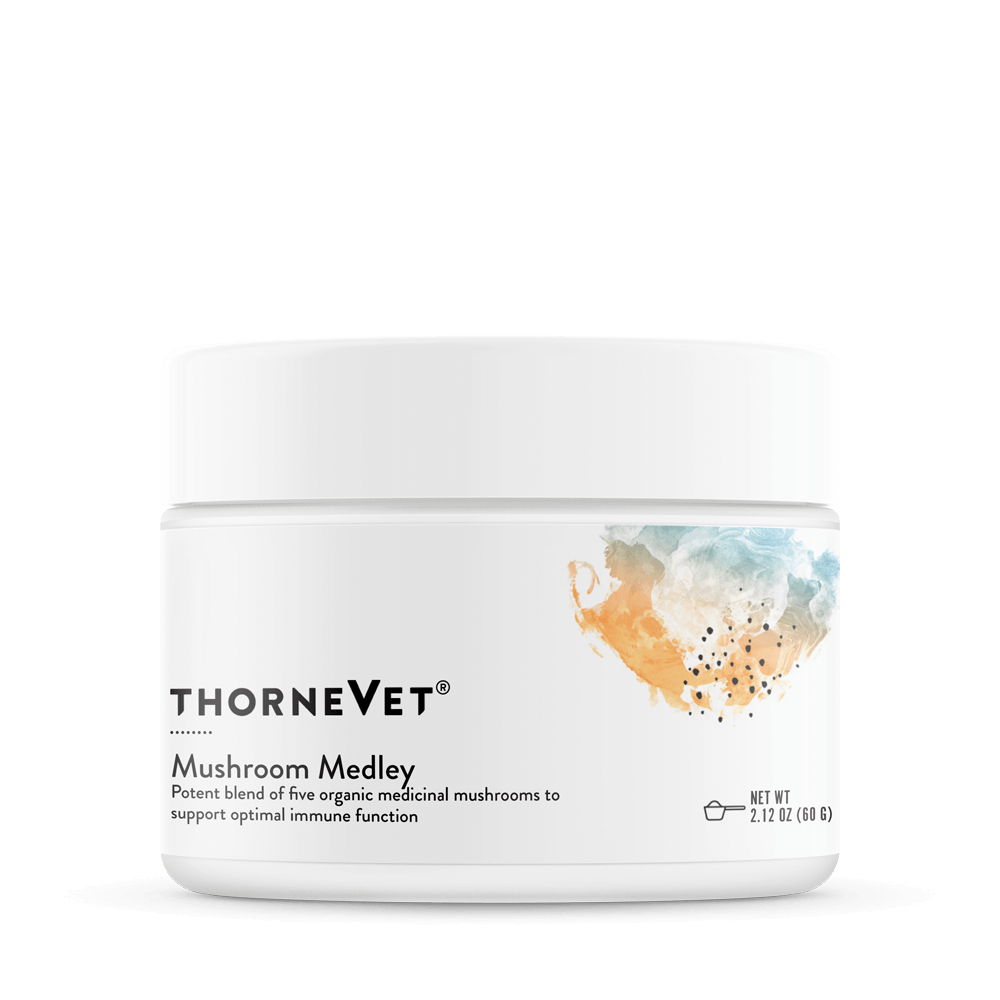
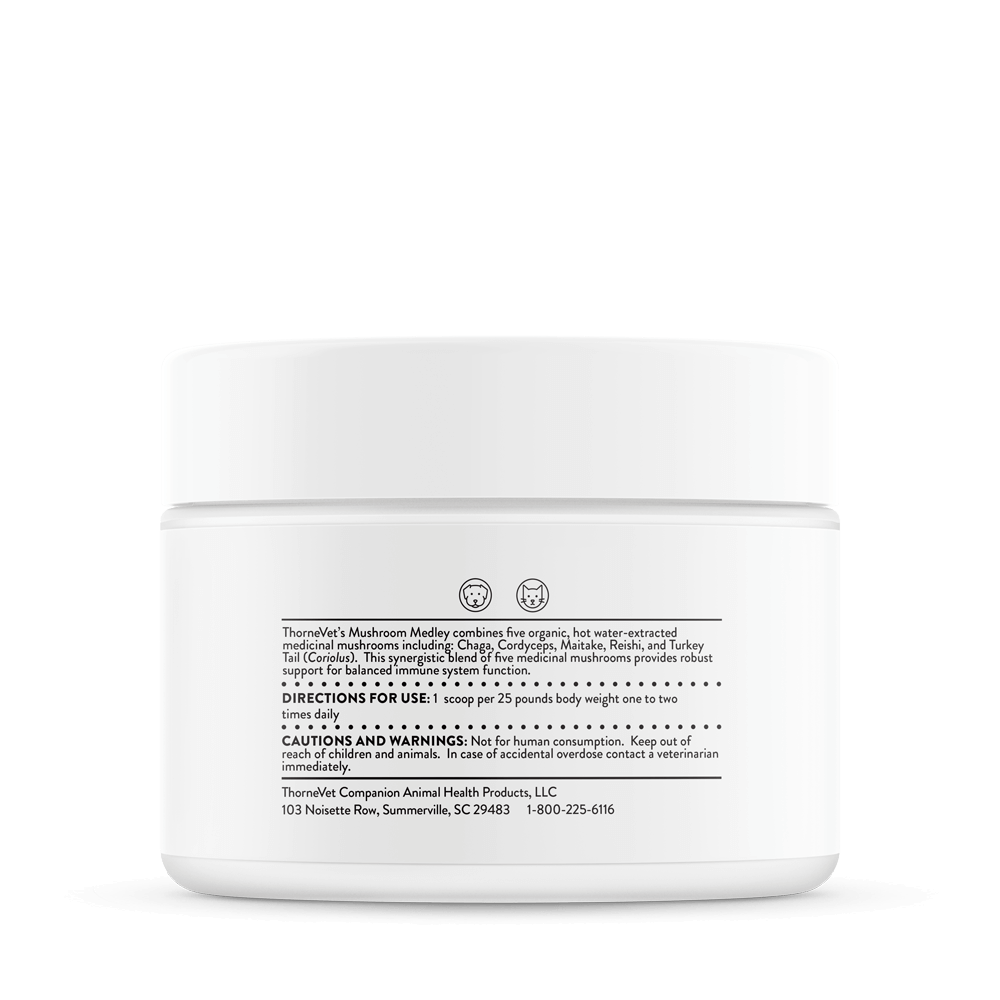
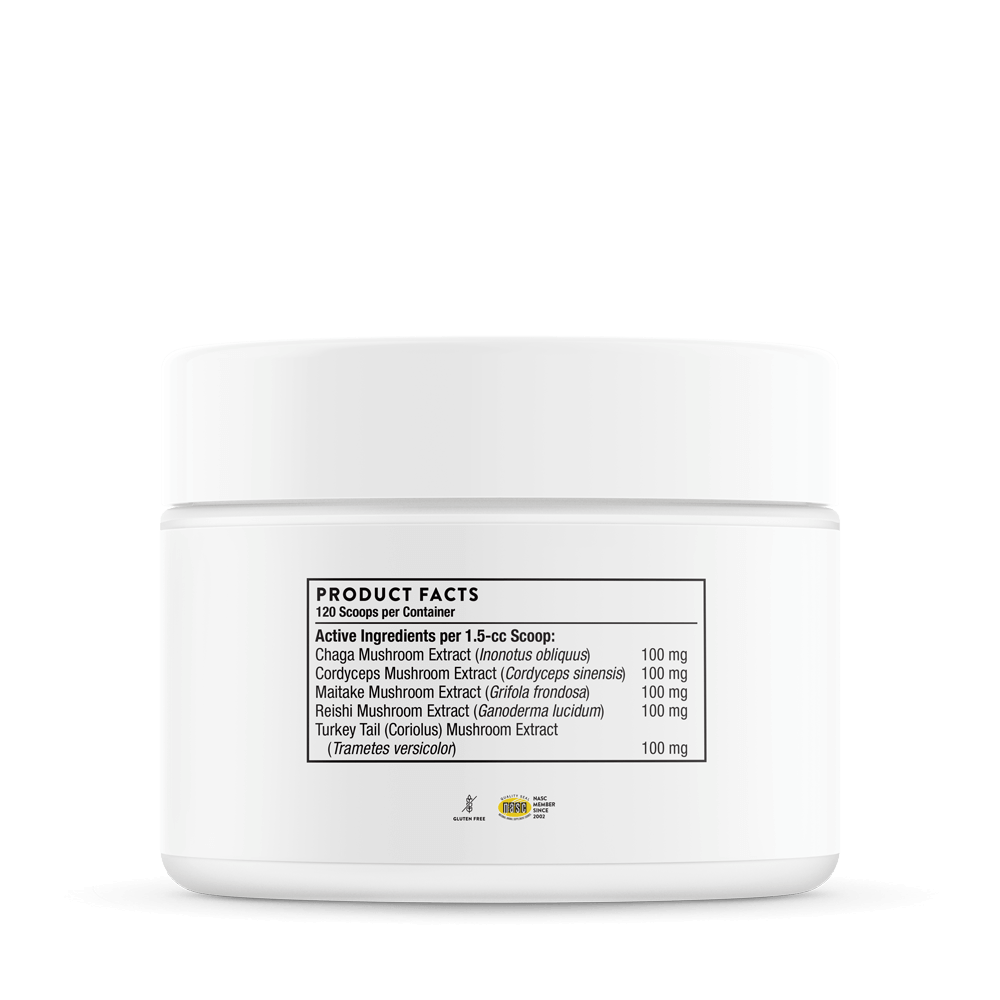
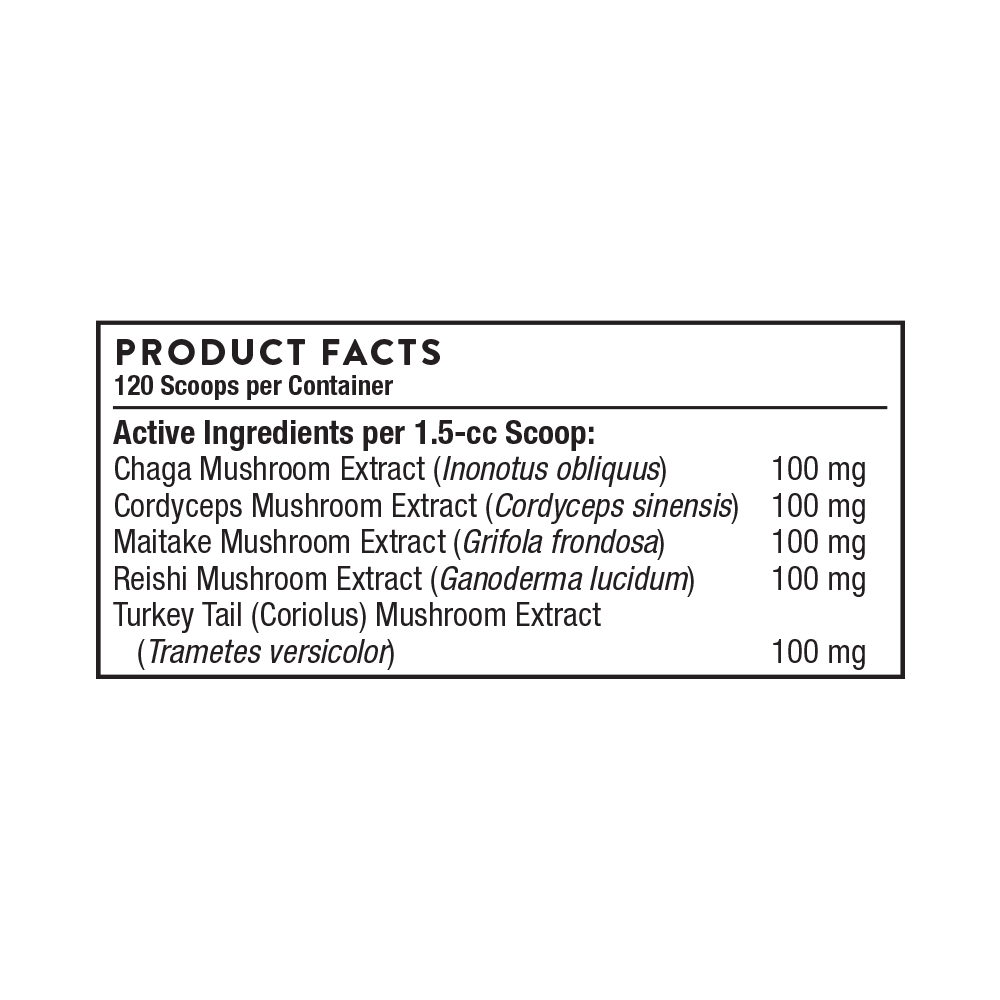
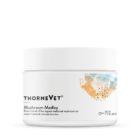
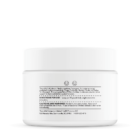
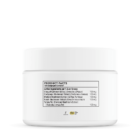
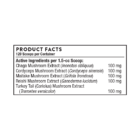





There are no reviews yet.